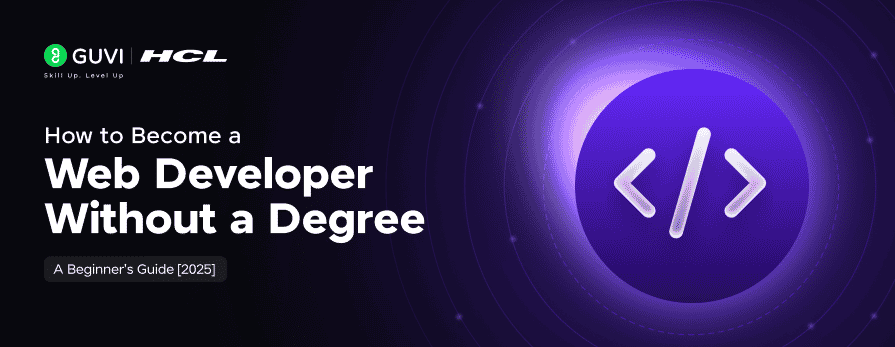
How to Become a Web Developer Without a Degree: A Beginner’s Guide [2025]
Oct 10, 2025 6 Min Read 3096 Views
(Last Updated)
Do you want to become a web developer but don’t want to or can’t invest 3-4 years getting a degree? I bet you’re wondering how to become a web developer without a degree. You might be surprised to learn that a self-taught web developer can land a job in as little as six months with consistent practice of 4-5 hours daily.
But it’s not as easily done as it is said, so we’re here with this article that will tell you everything you need to know about web development and building a successful career in it. So, how does one become a web developer without a degree? This beginner’s guide will walk you through the essential web development skills, provide a clear self-taught roadmap, and show you how to build a portfolio that gets you noticed—all without spending years in a traditional degree program. Let’s begin.
Table of contents
- What does a web developer do?
- Front-end, back-end, and full-stack roles
- Do you need a degree to be a web developer?
- Essential web development skills to learn
- 1) HTML, CSS, and JavaScript basics
- 2) Version control with Git
- 3) Responsive design and accessibility
- 4) Debugging and testing
- 5) Soft skills: communication and problem-solving
- Your self-taught roadmap: how to become a web developer without a degree
- Step 1: Start your learning journey with online resources
- Step 2: Build small projects
- Step 3: Explore front-end and back-end paths
- Step 4: Build your portfolio
- Step 5: Create a GitHub profile
- Step 6: Start applying for jobs and networking
- Concluding Thoughts…
- FAQs
- Q1. Is web development still a viable career choice in 2025?
- Q2. Can I become a web developer without a formal degree?
- Q3. What are the essential skills needed to become a web developer?
- Q4. How long does it take to become job-ready as a self-taught web developer?
- Q5. What's the salary range for web developers in India?
What does a web developer do?
Web developers are the architects behind the websites and web applications you use daily. Their primary responsibility is writing code that brings websites to life, ensuring they function properly and deliver a smooth user experience. Unlike what many assume, web development isn’t just about creating visually appealing interfaces—it involves complex problem-solving and technical expertise.
![How to Become a Web Developer Without a Degree: A Beginner's Guide [2025] 1 1@2x](https://www.guvi.in/blog/wp-content/uploads/2025/06/1@2x-1200x630.png)
Front-end, back-end, and full-stack roles
Web development typically falls into three specialized categories, each requiring unique skills:
- Front-end developers focus on the visible parts of websites that users interact with directly. They create the layout, design elements, and interactive features using HTML, CSS, and JavaScript.
These professionals ensure websites look good and function smoothly across different devices and browsers. They’re responsible for implementing responsive designs and enhancing user experience. In India, front-end developers earn approximately ₹5,00,000 to ₹8,00,000 annually for entry-level positions.
- Back-end developers work behind the scenes, building and maintaining the technology that powers websites. They handle servers, applications, and databases—essentially creating the foundation that makes the front-end possible.
Back-end developers use languages like Python, PHP, Ruby, and Java to create the logic and functionality that process data and power websites. These professionals in India typically earn around ₹6,00,000 to ₹9,50,000 annually at entry level.
- Full-stack developers combine both skill sets, working on both client-side and server-side programming. They understand the entire web development process and can build complete websites from scratch.
Full-stack developers are particularly valuable for smaller companies or startups that need versatile talent. In India, these professionals command salaries of approximately ₹7,00,000 to ₹10,00,000 annually for entry-level positions.
Do you need a degree to be a web developer?
The straightforward answer is no—a formal degree is not essential to become a web developer. In fact, according to Stack Overflow, less than half of all developers have a degree in computer science or related fields.
Many employers prioritize skills and practical experience over educational credentials. Since web development is still evolving as a field, there’s a high demand for talented professionals regardless of their educational background.
Instead of a traditional degree, aspiring web developers can pursue alternative learning paths:
- Coding bootcamps: Intensive programs lasting 1-9 months that teach essential programming skills
- Online courses and tutorials: Self-paced learning through platforms like HCL GUVI, Coursera, Udemy, or freeCodeCamp
- Certificate programs: Shorter, focused educational programs that demonstrate specific competencies
While a degree might help for certain senior positions or specialized roles, what ultimately matters most is your ability to code and create functional, responsive websites. Building a strong portfolio of projects often carries more weight than formal education when applying for web development positions.
Essential web development skills to learn
Mastering the right skills is crucial for anyone aiming to become a successful web developer without a degree. The good news? These skills are accessible through self-study and practice. Let’s explore the fundamental abilities you’ll need to develop.
![How to Become a Web Developer Without a Degree: A Beginner's Guide [2025] 2 2@2x 4](https://www.guvi.in/blog/wp-content/uploads/2025/06/2@2x-4-1200x630.png)
1) HTML, CSS, and JavaScript basics
The foundation of web development rests on three core technologies that work together to create functional websites. Think of them as the building blocks of the web:
- HTML (HyperText Markup Language) provides the structure and content of web pages. It’s like the skeleton of your website, defining elements such as paragraphs, headings, and navigation bars. HTML helps you format and structure a web document before it gets rendered to users.
- CSS (Cascading Style Sheets) controls the visual appearance of your HTML elements. It’s responsible for colors, fonts, layout, and spacing. CSS ensures your website looks attractive and functions properly across different screen sizes. Without CSS, your website would look like a plain text document.
- JavaScript brings interactivity and dynamic functionality to websites. While HTML and CSS create static pages, JavaScript adds features like interactive forms, drop-down menus, and content that updates without reloading the page. It’s what makes modern websites feel responsive and engaging.
For anyone wondering how to become a web developer without a degree, mastering these three technologies should be your priority. They form the core of front-end development and are prerequisites for more advanced skills.
2) Version control with Git
Version control is a system that records changes to files over time, allowing you to track modifications and revert to previous versions if needed. Git has become the industry standard for this purpose.
Learning Git involves understanding concepts like repositories, commits, branches, and pull requests. While it might seem complicated initially, tools like GitHub Desktop can make the learning process easier for beginners.
3) Responsive design and accessibility
Responsive design ensures your websites function well on all devices—from desktop computers to smartphones. Rather than creating separate websites for different screen sizes, responsive design allows your site to adapt automatically.
Furthermore, accessibility considerations should extend beyond responsive layouts to include proper semantic HTML and ensuring content remains navigable for users of assistive technologies.
4) Debugging and testing
Web developers spend significant time testing and debugging their code. These skills are essential for creating reliable, error-free applications and can save countless hours of frustration. Testing complements debugging by systematically checking your code for errors.
5) Soft skills: communication and problem-solving
Technical abilities alone won’t make you a successful web developer. Soft skills are equally important, especially if you’re self-taught and need to prove yourself without formal credentials.
- Problem-solving is perhaps the most essential skill. Web developers face challenges daily—from debugging complex code to figuring out how to implement specific features. Being patient, analytical, and creative when approaching problems will serve you well in this career.
- Communication skills help you collaborate effectively with team members and clients. Despite the stereotype of programmers working in isolation, web development is often highly collaborative. You’ll need to explain technical concepts to non-technical people, actively listen to requirements, and clearly articulate your ideas.
Ultimately, becoming a self-taught web developer requires balancing technical knowledge with these interpersonal abilities. Together, they form the complete skill set needed to succeed in this dynamic field.
Your self-taught roadmap: how to become a web developer without a degree
Becoming a self-taught web developer is entirely possible with a structured approach. This roadmap will guide you through the steps needed to go from beginner to job-ready without a degree.
![How to Become a Web Developer Without a Degree: A Beginner's Guide [2025] 3 3 1](https://www.guvi.in/blog/wp-content/uploads/2025/06/3-1.png)
Step 1: Start your learning journey with online resources
Begin your journey with high-quality learning platforms. Picking the right platform and course is of the most importance, this is probably the most important decision in your web development journey as this is what will shape your career and determine your future. Below, I will be listing some trusted resources and courses to ease your decision-making:
1. HCL GUVI – Full Stack Development Course
HCL GUVI’s program, incubated by IIT-Madras and IIM-Ahmedabad, covers front-end, back-end, and database technologies, along with career support.
- Covers HTML, CSS, JavaScript, React, Node.js, and MongoDB.
- Hands-on projects and mentorship from industry experts.
- Available in multiple Indian languages with placement support.
2. freeCodeCamp – Responsive Web Design & JavaScript Certifications
freeCodeCamp offers free, project-based certifications that focus on both design and programming skills.
- Certifications in Web Design, JavaScript, and Front-End Libraries.
- 1,400+ hours of coding challenges and practical projects.
- Completely free with strong community support.
3. The Odin Project – Full Stack JavaScript Curriculum
The Odin Project provides a free, comprehensive full-stack curriculum emphasizing hands-on projects.
- Covers HTML, CSS, JavaScript, Node.js, and databases.
- Focus on GitHub portfolio building and real-world projects.
- Free and community-driven.
Step 2: Build small projects
Project-based learning is crucial for mastering web development. Start with simple projects like personal websites, quiz applications, or URL shorteners. Building actual projects helps you apply theoretical knowledge to practical solutions and prevents the frustration of learning concepts without knowing how to use them. Moreover, these projects become the foundation of your portfolio.
Step 3: Explore front-end and back-end paths
After mastering the basics, decide which path interests you most. Front-end development focuses on visual elements and interfaces using HTML, CSS, JavaScript, and frameworks like React. Back-end development handles servers, databases, and application logic using languages like Python, Ruby, or PHP. Alternatively, pursue full-stack development by learning both areas.
Step 4: Build your portfolio
A compelling portfolio and relevant certifications are your strongest assets as a self-taught web developer. These tangible proofs of your skills often matter more to employers than formal education credentials.
Your portfolio should showcase diverse projects that demonstrate your range of abilities. Consider including:
- Personal website/portfolio: A polished site that serves as your digital business card
- Clone website: Recreation of an existing site to show your attention to detail
- CRUD application: Projects that demonstrate data handling capabilities
- API-connected website: Shows your ability to work with external data sources
- Perfect score website: A site that scores 100% on Chrome Lighthouse audits
For each project, provide context about your process and learning journey. Include screenshots or GIFs demonstrating functionality and make your code publicly available. Remember that quality trumps quantity—a few excellent projects are better than many mediocre ones.
Step 5: Create a GitHub profile
Create a GitHub profile to showcase your code and projects. Set up a special repository with your username to unlock GitHub’s profile README feature. Customize your profile with a professional banner, bio, skill badges, and GitHub stats. Pin your best projects and ensure each project has a detailed README with screenshots or GIFs demonstrating functionality.
Step 6: Start applying for jobs and networking
Once you’ve built your skills and portfolio, it’s time to launch your job hunt. As a self-taught web developer without a degree, your approach to job searching requires strategic planning and persistence.
Roles and salaries for web developers:
As we’ve discussed, even without a formal degree, self-taught developers with strong portfolios and relevant skills can secure rewarding opportunities across diverse industries. Here is a detailed look at the typical roles available in web development and the salaries you can expect as you advance in your career.
1. Entry-Level Web Developer (0–3 years of experience)
At the early stage, many begin their careers as junior web developers, front-end developers, or back-end developers. Entry-level positions focus on building fundamental skills in website development, maintaining websites, and assisting in design and coding tasks under senior guidance.
Expected Salary Range: ₹3,00,000 to ₹6,00,000 per annum
2. Mid-Level Web Developer (3–6 years of experience)
With more experience, developers move into roles such as full-stack developer, web application developer, or UI/UX developer. These roles require proficiency in both front-end and back-end technologies and greater independence in handling complex projects.
Expected Salary Range: ₹6,00,000 to ₹12,00,000 per annum
3. Senior Web Developer / Technical Lead (6+ years of experience)
At this level, developers manage large-scale projects, mentor junior developers, and contribute to system architecture and strategic planning. Roles may include senior web developer, technical lead, solutions architect, or product engineer.
Expected Salary Range: ₹12,00,000 to ₹25,00,000+ per annum
How to write a resume without a degree?
When crafting your resume without a degree, emphasize your technical skills and projects first. Place your skills section prominently near the top, highlighting both technical abilities and soft skills like problem-solving and communication. Include relevant certifications, online courses, and bootcamps in your education section.
Instead of listing irrelevant work experience, showcase relevant projects you’ve completed. Provide links to working deployments and code repositories for each project. Detail specific accomplishments and metrics that demonstrate your capabilities rather than just listing responsibilities.
Concluding Thoughts…
As I wind up this article, I hope you’re assured that becoming a web developer without a degree is undoubtedly achievable with determination and a structured approach. Throughout this guide, we’ve explored how you can transform from a complete beginner to a job-ready developer through self-learning and practical projects.
First and foremost, mastering the foundational technologies—HTML, CSS, and JavaScript—creates the bedrock for your technical skills. After that, building progressively complex projects helps cement your understanding while simultaneously creating portfolio pieces to showcase to potential employers.
The journey might seem overwhelming at first. However, with consistent practice of 4-5 hours daily, you could potentially land your first role in as little as six months. What matters most is persistence, problem-solving aptitude, and a genuine passion for continuous learning.
FAQs
Q1. Is web development still a viable career choice in 2025?
Yes, web development remains a stable and lucrative career choice in 2025. Job postings for web developers continue to rise across many countries, indicating a healthy job market for developers globally.
Q2. Can I become a web developer without a formal degree?
Absolutely. Many successful web developers are self-taught or have completed coding bootcamps. You can start by learning HTML, CSS, and JavaScript basics, then build projects to gain practical experience. A strong portfolio often matters more to employers than formal education.
Q3. What are the essential skills needed to become a web developer?
The core skills include HTML, CSS, and JavaScript for front-end development. Additionally, learning version control with Git, responsive design principles, debugging techniques, and problem-solving is crucial. Soft skills like communication are also important for collaborating with teams and clients.
Q4. How long does it take to become job-ready as a self-taught web developer?
With consistent practice of 4-5 hours daily, you could potentially become job-ready in as little as six months. However, the timeline can vary depending on your learning pace and the depth of skills you acquire.
Q5. What’s the salary range for web developers in India?
In India, entry-level web developers typically earn between ₹2,69,000 to ₹4,20,000 annually. As you gain experience, salaries can increase significantly, with senior developers potentially earning up to ₹7,00,000 or more per year. Salaries vary based on skills, experience, and location.


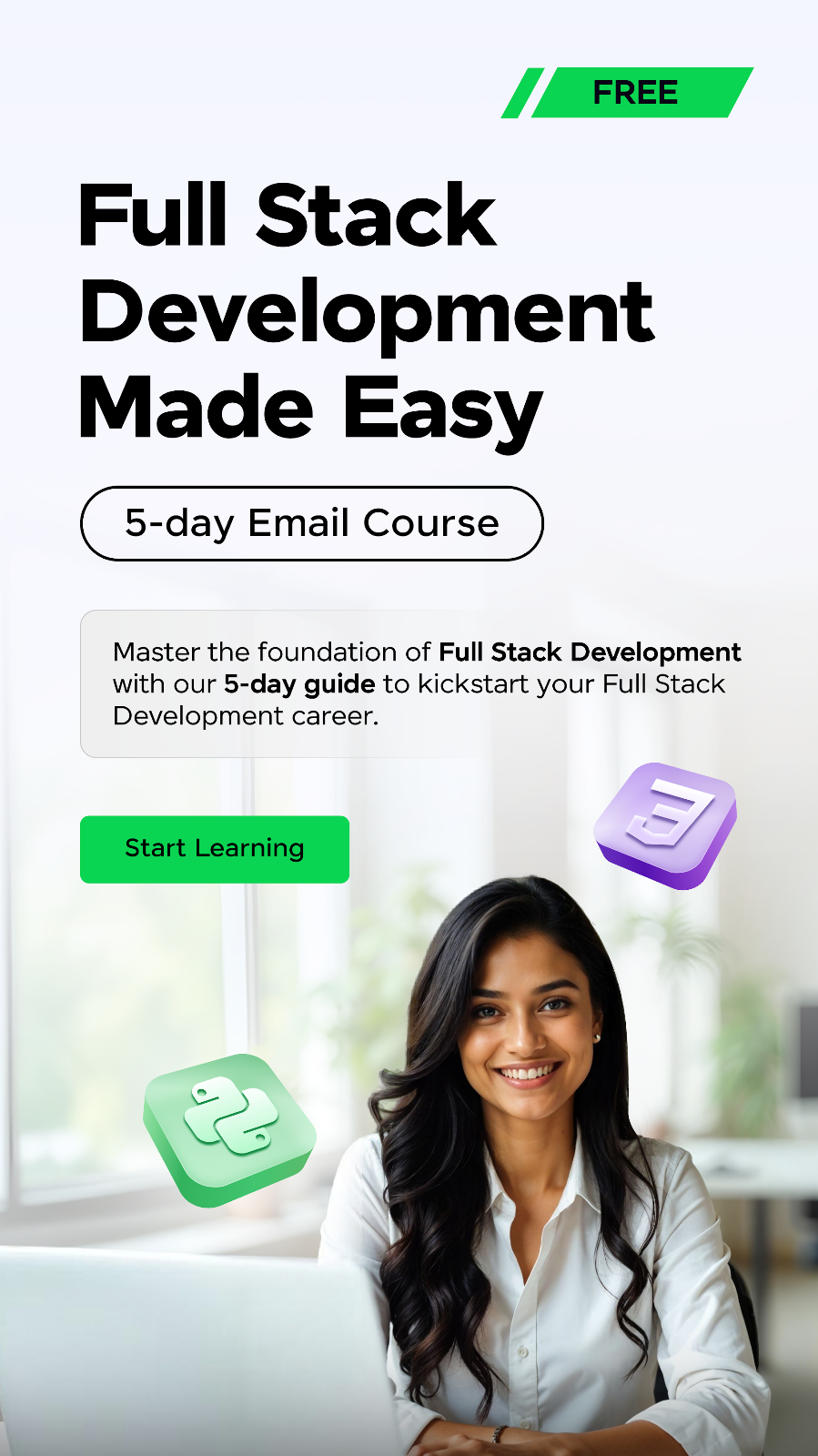
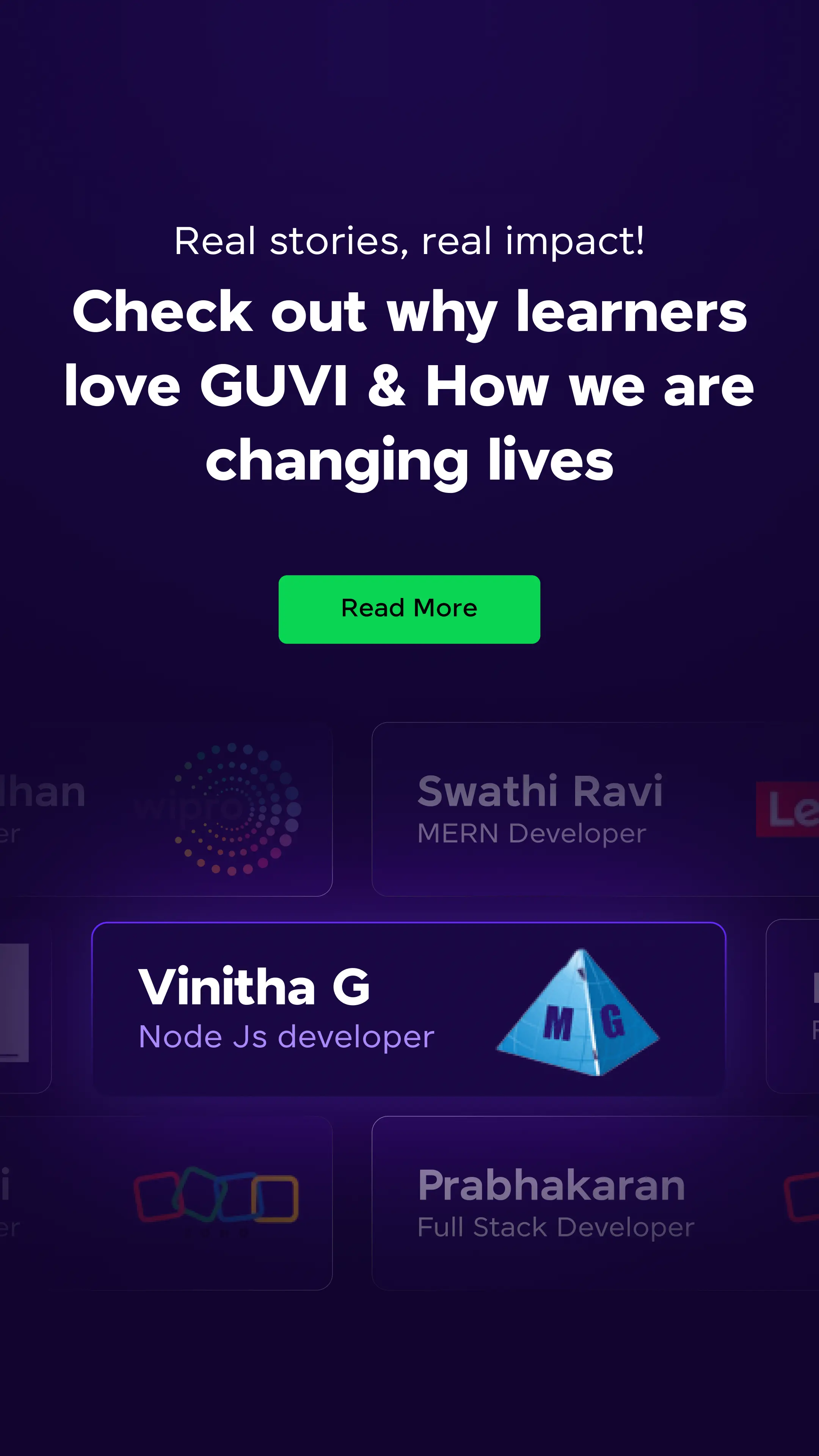







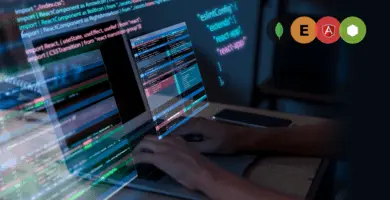
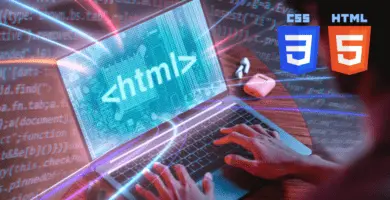








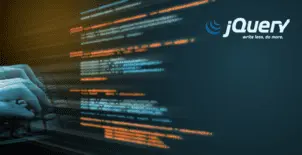


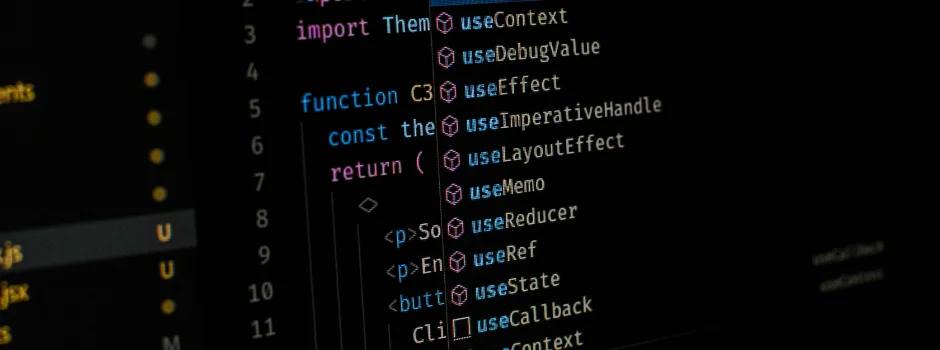
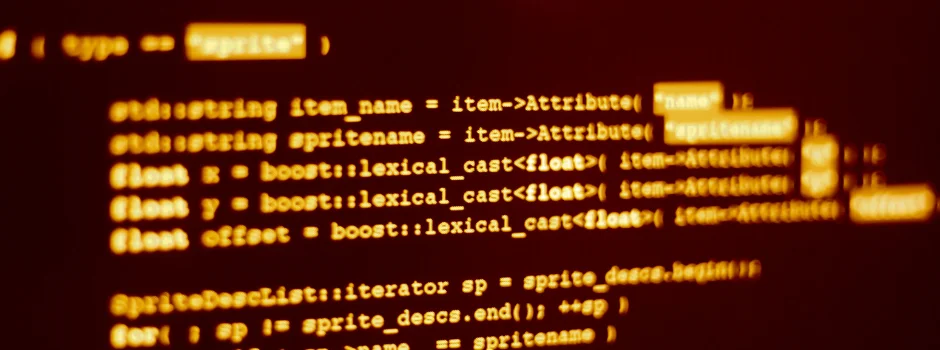










Did you enjoy this article?